On the morning of November 28, the Ministry of Ethnic Minorities and Religions held a consultation conference with ministries and branches on the policy documents of the Law on Belief and Religion (amended).
In his opening speech, providing information on three prominent policies in the Law on Belief and Religion (amended), Mr. Nguyen Tien Trong, Deputy Head of the Government Committee for Religious Affairs (Ministry of Ethnic Minorities and Religions) said that the 2016 Law on Belief and Religion does not have any regulations on belief and religious activities in cyberspace.
Meanwhile, reality shows that a number of religious activities of representatives of religious establishments, religious activists, and religious organizations have been using information technology and cyberspace to propagate doctrines, organize religious activities, connect with their communities and followers...
The draft law amends regulations on belief and religious activities in cyberspace with the goal of building a clear and unified legal basis to diversify methods of belief and religious activities; creating a transparent, public and convenient environment for individuals and organizations to conduct belief and religious activities in cyberspace quickly and promptly.
At the same time, specifically define the responsibilities of individuals and organizations conducting religious activities on cyberspace; the responsibilities of state agencies, telecommunications enterprises, and Internet service providers; and increase flexibility, friendliness, and timeliness in accessing and updating information, meeting people's diverse needs regarding beliefs and religions.
The second policy is decentralization and delegation to ensure freedom of belief and religion for everyone; state management measures in the field of belief and religion.
The amendment of this policy aims to unify the authority and responsibility for state management of beliefs and religions in accordance with the organization of the state apparatus after the arrangement, merger, and organization of two-level local governments; enhance the responsibility and efficiency in management and operation of each level of government; clearly identify and create conditions for organizations and individuals with specific addresses to propose and recommend state agencies to resolve issues related to belief and religious activities...
The draft Law on Belief and Religion (amended) also simplifies administrative procedures and digital transformation in the field of belief and religion. Currently, the form, order and procedures for implementing administrative procedures in this field are not flexible enough to suit the actual conditions at the grassroots level.
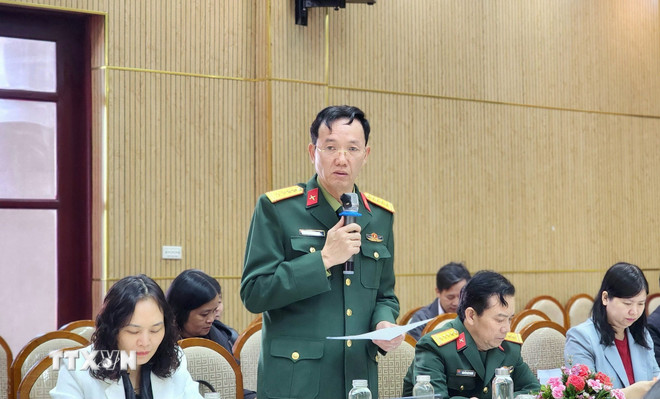
The regulations are amended in the direction of continuing to simplify administrative procedures (without creating new administrative procedures), at the same time reviewing and removing regulations related to reducing the components of documents such as criminal records; removing regulations on components of documents, time limits for performing procedures in the Law in the direction of assigning the Government to specify in detail and in accordance with the organization of 2-level local authorities. At the same time, promoting digital transformation in state management of beliefs and religions, contributing to the building of a digital government, towards developing a modern, transparent, and effective digital governance, associated with ensuring information security and the right to protect personal data of religious subjects.
At the conference, delegates highly appreciated the Ministry of Ethnic Minorities and Religions' close coordination with ministries, branches, localities and religious organizations, organizing a summary of the implementation of the Law in 2016, clearly pointing out the results achieved; at the same time frankly assessing the limitations and inadequacies from practice to propose comprehensive amendments suitable to new requirements.
According to Colonel Vu Thanh Minh, Deputy Director of the Department of Mass Mobilization (Ministry of National Defense), in recent years, the Party and State's religious guidelines and policies have continued to be improved; religions have operated stably, and many ethical and humanistic values have been promoted in social life. The Vietnam People's Army always identifies mass mobilization and mobilizing religious people as an important political task, contributing to strengthening the faith of dignitaries and followers, especially in remote, border and island areas.
However, in practice, many new problems have emerged. Religious activities are increasingly diverse, expanding into the digital space; many religious organizations use social networks and cross-border platforms to preach and mobilize, causing difficulties for management. Some organizations and individuals take advantage of religion to propagate superstition, incite, and affect political and social stability in ethnic minority and border areas...
The Ministry of National Defense agreed that this amendment to the Law needs to ensure harmony between three requirements: respecting and ensuring people's freedom of belief and religion, without discrimination; strengthening the effectiveness of state management, ensuring religious activities take place in accordance with the law, transparently and stably; meeting the requirements of protecting national sovereignty and security, especially in strategic areas: borders, islands, ethnic minority areas and cyberspace.
Commenting on the draft law, Mr. Vu Trung Kien, Deputy Chief of Office of the Ministry of Ethnic Minorities and Religions, agreed with the specific regulations on principles and responsibilities of entities when operating in cyberspace to address the current legal gap.
However, it is recommended to review, supplement and clarify the mandatory principles, legal responsibilities and violation prevention mechanisms. In particular, it stipulates the mechanism of binding responsibilities, requiring individuals and organizations to prevent and remove violating content within 24 hours of the request of a competent state agency; at the same time, it stipulates the responsibilities of telecommunications enterprises and Internet service providers in preventing violating content.
Mr. Vu Trung Kien also said that it is necessary to strengthen decentralization and thoroughly decentralize to the People's Committees at the provincial and communal levels; continue to review and reduce administrative procedures in a way that does not create new procedures.
Formerly Deputy Head of the Government Committee for Religious Affairs, directly participating in the drafting of the 2016 Law on Belief and Religion, Major General Bui Thanh Ha, former Deputy Director of the Department of Internal Security (Ministry of Public Security) emphasized the need to thoroughly grasp the Party and State's viewpoints on belief and religion in Directive 18-CT/TW of the Politburo and the Secretariat's Notice on new belief and religious phenomena. Directive 18 has a very fundamental innovation that not only respects and promotes the cultural and ethical values of religion but also considers religion as a resource.
“In our legal regulations, we must make sure that the international community sees the law as a beautiful declaration of human rights, freedom of belief and religion, and our ability to solve problems,” Major General Bui Thanh Ha emphasized.
Major General Bui Thanh Ha said that our religious life is very diverse, rich and vibrant. “Is there a need to adjust, to what extent and how? If the activities are in order, do not affect anything and contribute to society, there is no need to adjust,” he said./.
Source: https://www.vietnamplus.vn/tao-moi-truong-minh-bach-cho-hoat-dong-tin-nguong-ton-giao-tren-khong-gian-mang-post1079867.vnp









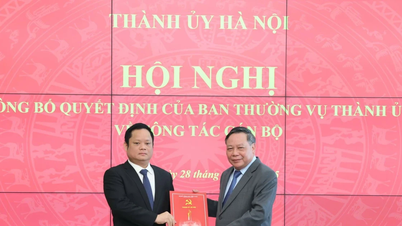
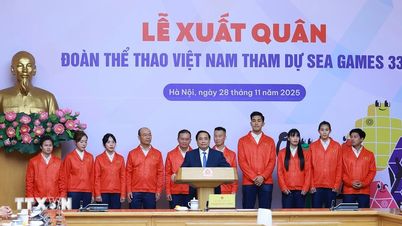
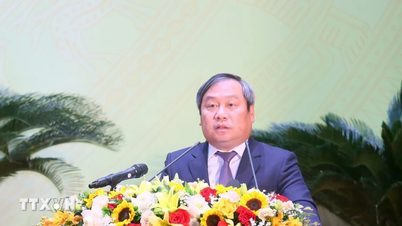
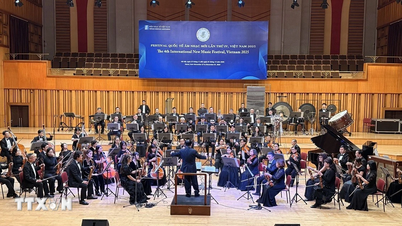
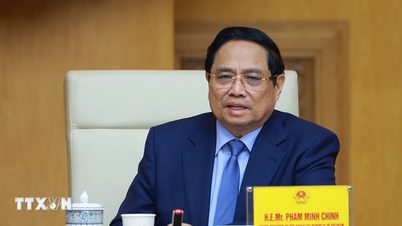
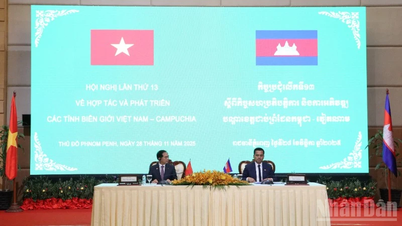


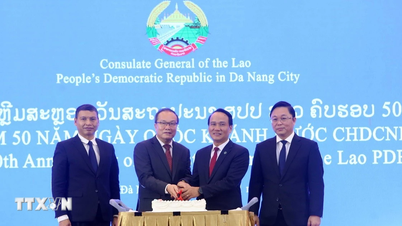
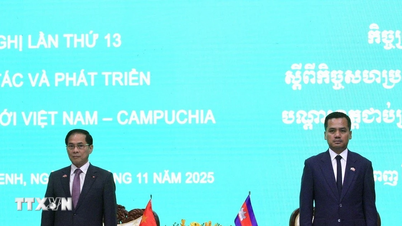
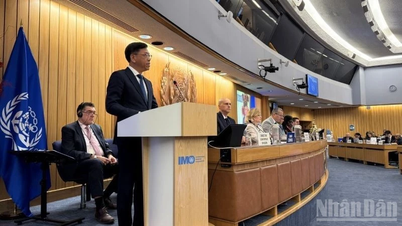
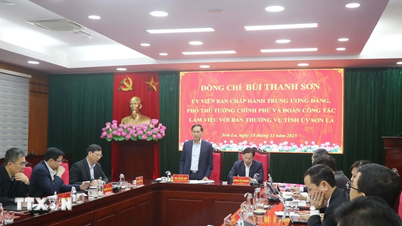




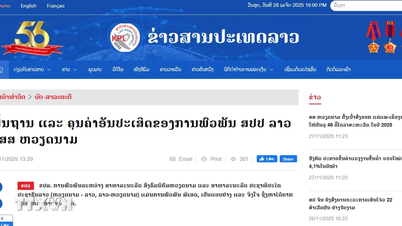
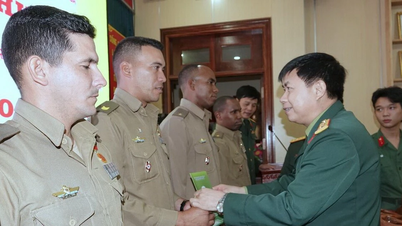
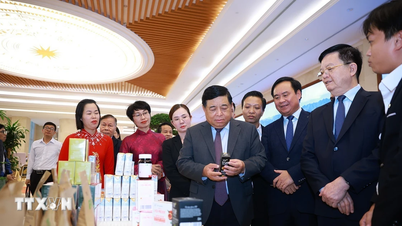

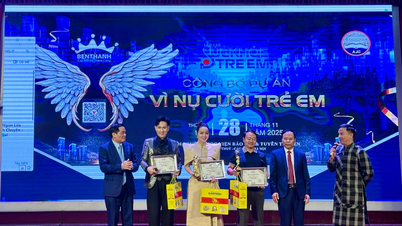
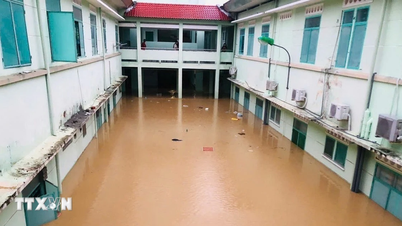

























































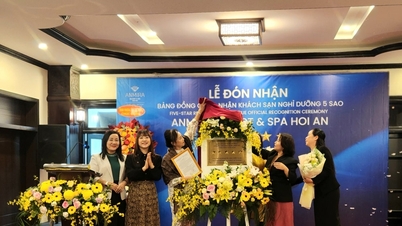
















Comment (0)